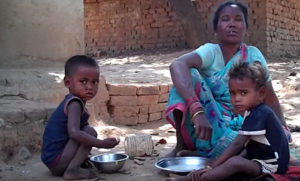A 16-year-old Birhor girl has passed the matriculation exam in the Hazaribagh District of India’s Jharkhand State and she plans to continue her education. According to a Press Trust of India story of August 3, published by numerous major news services, Payal Birhor is the first girl from their society to reach that level of achievement. The vast majority of young Birhor are content to follow their elders into traditional, forest-based occupations.

The news story quoted Payal’s reaction to her achievement, which was declared on August 1: “I feel proud to be the first girl student among the 36 tandas of Hazaribagh District to pass matriculation examination,” she told the reporter. She said she plans to continue her education. She wants to encourage other Birhor girls to continue their educations also, to not drop out of school. Their lives will go better, she said.
Her mother, Sundari Devi, expressed her pleasure in the girl’s achievement. She said that the guidance of the school principal, Upendra Narayan Singh, inspired her daughter to pursue her studies, which have resulted in her success. The family lives in Kandsar, which is in the Katkamsandi Block of the district.
Local officials also praised Payal’s achievement. Aditya Kumar Anand, the Deputy Commissioner of Hazaribagh District, congratulated the girl on her success, particularly since so many of her peers are unwilling to even attend classes. He pledged financial support from the state government for Payal and other Birhor girls who decide to pursue a higher level of education. He said the district will make sure she is admitted to the best institution available. Jagannath Prasad, the Education Officer for the Katkamsandi Block, said that Payal’s success should inspire other Birhor girls to also study hard.
Finally, the news reporter sought the opinion of Vinod Ranjan, an instructor of tribal education at Vinoba Bhave University in Hazaribagh. He said that the state government has provided facilities and incentives to encourage the Birhor to send their kids to school. Despite that encouragement, they continue their traditional, forest-based pursuits: rope making and hunting.